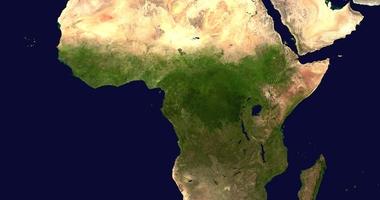
COP 27 Week One: Follow the Money
At the UN's COP 27 climate talks in Egypt, the message to developed nations is crystal clear: Put your money where your mouth is.
If you wanted to boil the first week of UN climate talks in Sharm El-Sheikh, Egypt down to just two words, they would this: Enough talk.
There is, of course, a lot to talk about at COP 27. Starting with the fact that on current trajectory, the world has "no credible pathway" to meeting the Paris Agreement's stated goal of holding warming to 1.5 degrees, opening the door to an extremely dangerous future. As UN Secretary-General António Gueterres put it in opening the conference, "We are in the fight of our lives and we are losing . . . And our planet is fast approaching tipping points that will make climate chaos irreversible."
Another key subject of discussion has been how the world – and in particular, wealthy nations in the North now staring into winter – balance that fact with responding to the global energy, inflationary, and food crises unleashed by Russian aggression in Ukraine.
To date, the news has not been inspiring, as the "Dash for Gas" – with Europe scrambling to replace Russian gas with new gas sourced from Africa in a troubling rerun of the colonial exploitation of centuries past – and the expansion of liquified natural gas (LNG) facilities worldwide now seriously threatening global climate goals.
But at a conference with the tagline "Together for Implementation," the overall sense has been that the time for discussion and excuses is long over. As former US Vice President Al Gore said, "We have a credibility problem - all of us. We're talking and we're starting to act, but we're not doing enough."
For many developing nations, that "not doing enough" has been painfully true – and where COP 27 may be the start of something – is in one area in particular: finance.
A History of Broken Promises
Written into the Paris Agreement is a promise to confront the core cruelty of climate change, where rich nations pollute and poorer nations from Pakistan to the Philippines suffer the greatest consequences. That promise is for wealthy nations to mobilize $100 billion each year to help developing nations rebuild from the rubble of hurricanes and floods and – just as important – adapt and build resilient economies capable of thriving in a warmer world. The agreement further called for nations to reassess and set new targets for finance starting in 2026.
The first catch is that that $100 billion was never going to be enough, with the UN estimating that adaptation needs alone in developing nations could reach $140–300 billion by 2030. The second is that wealthy nations have so far failed to deliver at anything like the levels promised and then hemmed and hawed when pressed for more.
Developing nations have had enough, and increasingly at COP 27, pulled no punches in calling out the West for its failure. As the president of Kenya, William Ruto, said:
“Against the backdrop [of drought in the Horn of Africa], the lengthy discussions at COPs, with its stalling, delaying tactics and procrastination that have hampered implementation and delivery, is simply cruel and unjust. We cannot afford to spend more time skirting around the real issues and break out of the open-ended, process-focused discussions we are trapped in. Further delay will make us busy spectators as calamity wipes out lives and livelihoods."
Is the Dam Cracking?
One of the key and often repeated demands from developing nations is for a formal mechanism for "loss and damage" that historically high emitters like the US and EU members would pay into to help countries recover from climate destruction.
Wealthy nations have so far resisted to commit to specifics, fearing any funding mechanism could ultimately open the door to growing and unlimited demands for restitution as warming continues and climate impacts worsen.
This year, there are signs that wealthy nations – while still seeking to reiterate the bar on liability for their emissions – may be open to alternative arrangements that provide developing nations with the funding they need.
For the first time, "funding arrangements" for loss and damage appear on the conference agenda and the US has at least publicly welcomed the development, with a State Department press release noting, "We are pleased that the parties were able to agree on an agenda item related to loss and damage."
An agenda item is far from what climate justice leaders like Malawi President Lazarus Kakwera are calling for, noting the "clear difference in culpability and capacity" between developed and developing nations. But the hope is that it can be the start of real progress on real funding to achieve many of the same goals.
A Reckoning on Global Finance
Another key part of the picture is the role of major international finance institutions like the World Bank. Historically, the World Bank in particular has a major barrier to energy transition, providing an estimated $15 billion in financing for coal plants, pipelines, and other fossil fuel facilities worldwide since 2015 alone.
The bank is also a major source of development finance for many of the Global South countries suffering the worst of climate devastation. Which has prompted a new charge to reform the bank to become a major engine for clean energy transition instead.
One of the leaders of this charge is Barbados Prime Minister Mia Mottley, whose calls for reform to better serve climate-vulnerable nations have become known as the Bridgetown Agenda, named after the country's capital.
The approach and demands for reforming the World Bank and other multilateral development banks seems to be resonating at COP 27, with US Special Presidential Envoy for Climate John Kerry telling reporters that reform could unlock $1 trillion in funding for clean energy transition in countries hard hit by climate change. Many advocacy groups are also calling for reform of multilateral development banks in final decisions at COP 27.
More is needed, but these shifts in tone – coupled with eports that US Senator Ed Markey is planning to organize his colleagues to remove the longtime climate denier leading the World Bank – offer reasons for hope that one of the planet's major funder for climate-destroying fossil fuels could instead become a critical catalyst for change. After all, the future of the world in its name depends on it.
Follow Climate Reality on the ground in Sharm El-Sheikh on Instagram and Twitter. We'll also be reporting from the second week of COP 27 and to stay connected with the latest, sign up for our email list today.




